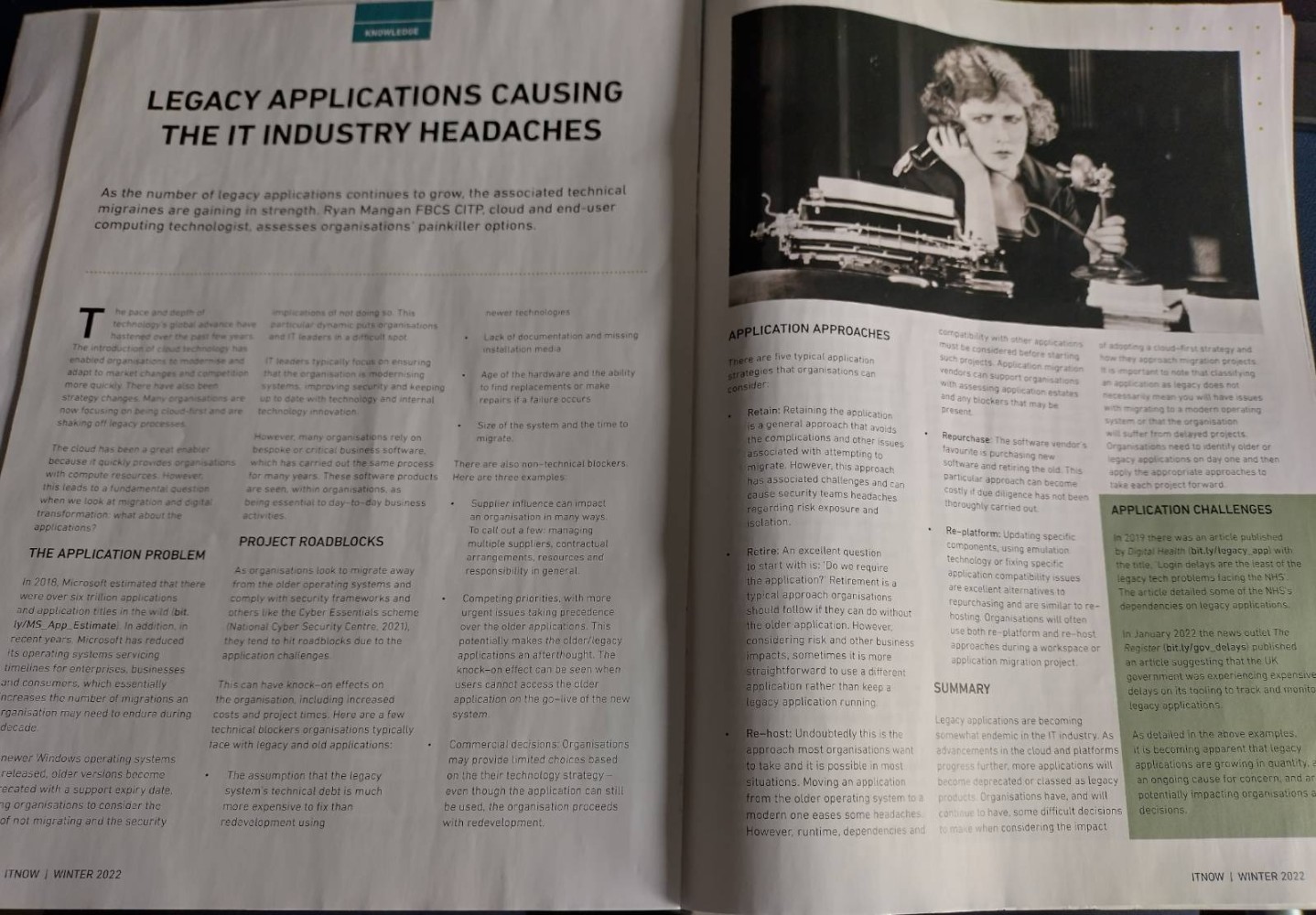May 26, 2023
Legacy Applications The IT Industry Headache And How To Address It

Last year, I had the pleasure of contributing an article to the BCS, The Chartered Institute for IT where I explored the challenges legacy applications present to IT departments. The same piece was also featured in the BCS ITNow Magazine.

In the article, I discussed the escalating number of legacy applications and the accompanying technical migraines they induce, which are exacerbated by the rapid pace of advancements in cloud technology and changing strategies in organisations.
I then moved on to discuss the 'application problem'. With an exponentially growing number of applications and their titles in the wild, and Microsoft's reduction of operating systems servicing timelines, organisations are faced with more frequent migrations than ever before. I highlighted the reliance of many organisations on bespoke or critical business software, which play integral roles in their day-to-day operations .
I explored 'project roadblocks' that organisations often encounter when trying to migrate away from older operating systems. These roadblocks, both technical and non-technical, can lead to increased costs and project times. They span across areas from supplier influence to competing priorities and commercial decisions . A key part of the article presents five typical 'application approaches' that organisations can consider:
- Retain: Keeping the application, despite the associated challenges and potential risk exposure.
- Retire: Considering if the application is necessary, and retiring it if possible.
- Re-host: Moving the application from an older to a modern operating system.
- Repurchase: Buying new software and retiring the old, though this approach can become costly if due diligence has not been thoroughly carried out.
- Re-platform: Updating specific components, using emulation technology, or fixing specific application compatibility issues .
As I concluded the article, I underscored that as advancements in cloud and platforms progress, more applications will become deprecated or classified as legacy products. Therefore, organisations need to make tough decisions when considering the impact of adopting a cloud-first strategy and how they approach migration projects.
However, it's important to note that classifying an application as legacy does not automatically mean you will face issues migrating to a modern operating system or that your projects will be delayed. In fact, many applications can be migrated to modern operating systems using technologies like hashtag#msix & hashtag#msixappattach , which help secure them for the future. Hence, the knee-jerk reaction to buy new isn't always necessary or the best course of action.
I invite you to read the full article here for a deeper understanding and to learn more about this critical issue. Your feedback and thoughts are always welcome!
See the source here: https://www.linkedin.com/pulse/legacy-applications-industrys-headache-how-address-mangan-fbcs-citp/
